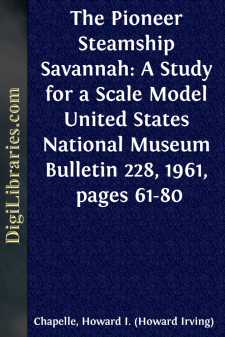Non-Classifiable
- Non-Classifiable 1768
Non-Classifiable Books
Sort by:
by:
John Abercrombie
NATURE AND IMPORTANCE OF THE SCIENCEOF THE MORAL FEELINGS. Man is to be contemplated as an intellectual, and as a moral being. By his intellectual powers, he acquires the knowledge of facts, observes their connexions, and traces the conclusions which arise out of them. These mental operations, however, even in a high state of cultivation, may be directed entirely to truths of an extrinsic kind,—that...
more...
by:
Hugo Munsterberg
CHAPTER I THE OUTER DEVELOPMENT OF THE MOVING PICTURES It is arbitrary to say where the development of the moving pictures began and it is impossible to foresee where it will lead. What invention marked the beginning? Was it the first device to introduce movement into the pictures on a screen? Or did the development begin with the first photographing of various phases of moving objects? Or did it start...
more...
by:
Brillat-Savarin
The excellent man to whom we are indebted for this book has described himself, with so much charm, nature and truth; the principal events of his life have been recorded in such an agreeable and faithful manner that very few words will suffice to finish the story. Brillat Savarin (Anthelme) Counsel of the Court of Cassation, member of the Legion of Honor, member of the Society for the Encouragement of...
more...
A pylgremage, for pure deuocyõ. Enedemus. Signifieth to forsake. What new thynge ys it, that I se? doo I nat see Ogygyus my neybur, whom no mã could espie of all thes sex monthes before? yt was a sayng that he was deed, It is euen he, except that I be ferre deceyuyd. I wyll go to hym, & byd hym good morow. Good morow was faynyd of an old kynge of Thebanes.. Good morow to you Menedemus. Mene. I...
more...
The Pioneer SteamshipSAVANNAH: A Study for a Scale Model The original plans of the pioneer transatlantic steamer Savannah no longer exist, and many popular representations of the famous vessel have been based on a 70-year-old model in the United States National Museum. This model, however, differs in several important respects from contemporary illustrations. To correct these apparent inaccuracies in a...
more...
by:
Philip Gosse
PREFACE Let it be made clear at the very outset of this Preface that the pages which follow do not pretend to be a history of piracy, but are simply an attempt to gather together, from various sources, particulars of those redoubtable pirates and buccaneers whose names have been handed down to us in a desultory way. I do not deal here with the children of fancy; I believe that every man, or woman...
more...
by:
Margaret Sanger
CHAPTER I: A New Truth Emerges Be not ashamed, women, your privilege encloses therest, and is the exit of the rest,You are the gates of the body, and you are the gates ofthe soul. —Walt Whitman This book aims to be neither the first word on the tangled problems of human society to-day, nor the last. My aim has been to emphasize, by the use of concrete and challenging examples and neglected facts, the...
more...
GEORGE BORROWSELECTED PASSAGES It is very possible that the reader during his country walks or rides has observed, on coming to four cross-roads, two or three handfuls of grass lying at a small distance from each other down one of these roads; perhaps he may have supposed that this grass was recently plucked from the roadside by frolicsome children, and flung upon the ground in sport, and this may...
more...
The Postage Stamp follows the Flag. The same small talisman which passes our letters across the seven seas to friends the world over maintains the lines of personal communication with our soldiers and sailors in time of war. Wherever the British Tommy goes he must have his letters from home; like the lines of communication, which are the life-line of the army, postal communication is the chief support...
more...
by:
Thomas Blossom
No very satisfactory account of the origin and progress of the Postal Service of the country, in its more immediate connection with the local history of Buffalo, can now be compiled. The early records of the transportation service of the Post-Office Department, were originally meager and imperfect; and many of the books and papers of the Department, prior to 1837, were destroyed or lost when the public...
more...











